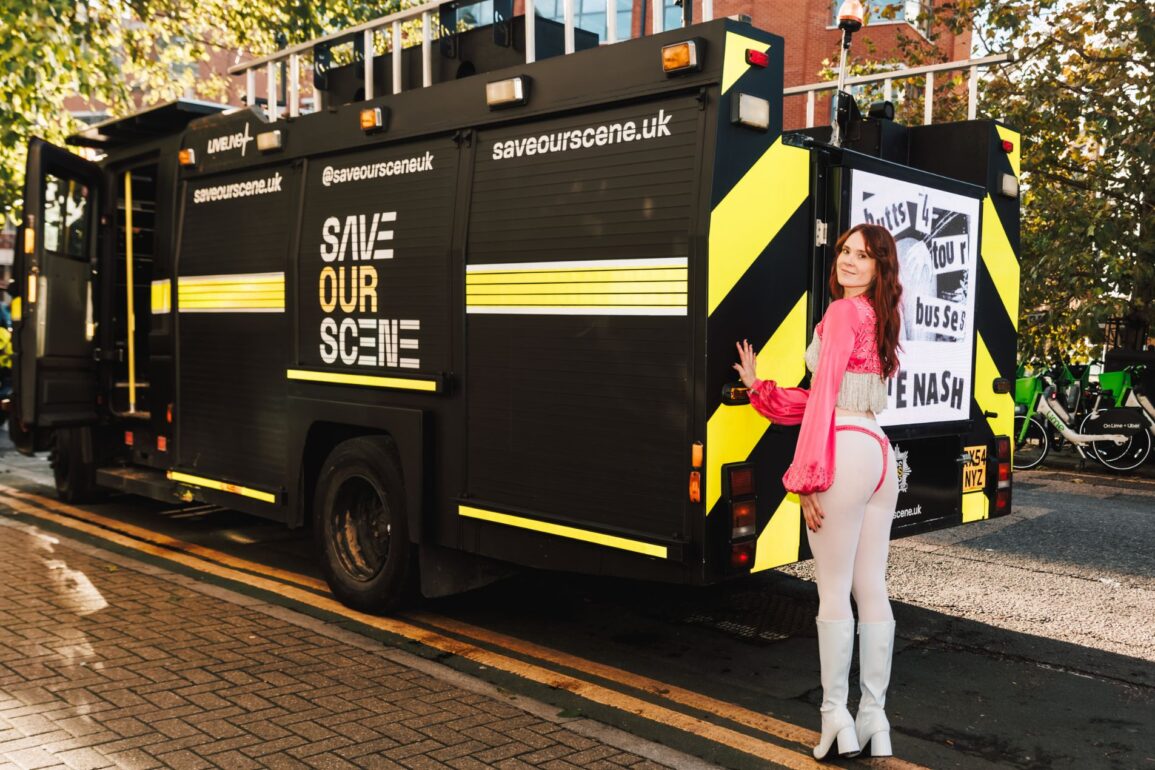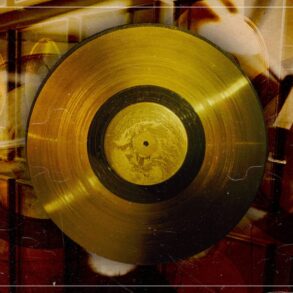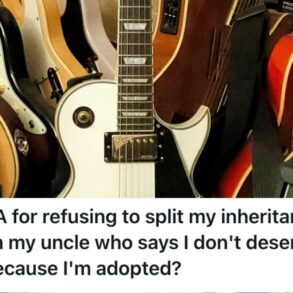Kate Nash has spoken to NME about her ‘Butts For Tour Buses’ campaign, the online row with The Lottery Winners – and why things need to change for artists now to avoid “collapse”.
- READ MORE: UK grassroots venues suffering from “the complete collapse of touring” – here’s how you can help
Nash recently made headlines when she launched her ‘Butts for Tour Buses’ campaign, which saw her join OnlyFans to protest the music industry and help raise money for her UK and European tour.
The singer-songwriter and GLOW actor then took her “bum on the back of a fire truck” protest to the London offices of Live Nation and Spotify as well as the Houses of Parliament to highlight the challenges facing artists arguing: “The industry is in crisis, the music industry has failed artists, and is completely unsustainable, and my arse is shining a light on that.”
This comes as the UK government recently backed the call for a ticket levy on arena gigs and above to feed the grassroots, with small venues in a perilous situation and artists struggling more than ever to make ends meet with the odds stacked against them. A deadline has since been set for March for the music industry to react in a meaningful way to the levy, before the government will be forced to step in and act. With the dialogue increasing in recent years, it appears to be coming to a point of real reckoning now.
“It’s exploding now because of my bum! No, I’m joking,” Nash told NME. “A lot of work has been done over the last five years by people in government, Tom Gray, Broken Record, Sam Duckworth, Music Venue Trust – they’ve been working on this with proper activism at a political level. The reason it’s tipping over is because we’re almost at collapse. It can only go on to be something we all complain about behind the scenes for so long until you start to see it crumble.”
She continued: “The reality is that touring is making losses, not profit. The grassroots is in absolute crisis. Venues are closing, festivals are being cancelled. People are thinking, ‘What’s the point in starting a band?’ and ‘How can I as an artist carry on?’
“Because of the massive inflation that everyone is experiencing outside of music, so many artists are asking themselves, ‘Is this just a hobby or a passion project?’ ‘Am I going to cross the threshold or is it time for something to get done on a governmental level?’”
Recommended
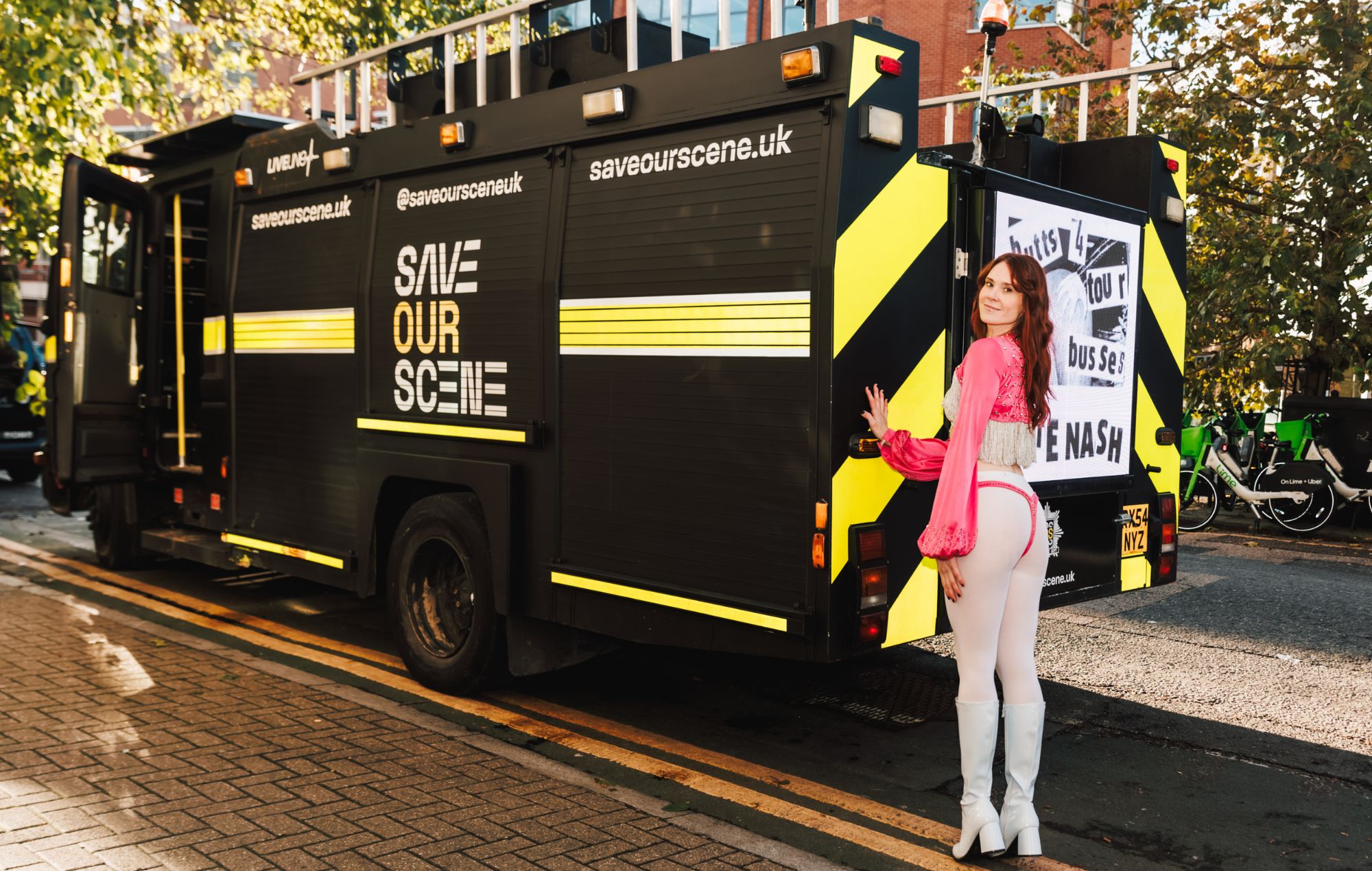
The conversation around her campaign took an unexpected turn when The Lottery Winners’ Thom Rylance tweeted that Nash shouldn’t try to represent working class musicians, as well as criticising her background as a former pupil of the BRIT School, mistakenly labelling it a fee-paying establishment.
“I didn’t really understand that,” Nash told NME. “What’s the argument about the BRIT School? It’s a free performing arts school. An important message to get out there is that the BRIT School is for everyone. You don’t have to pay to go there. If you heard and got confused, don’t be discouraged from applying. Free performing arts access to young people is so important.”
Rylance previously clarified his comments, saying he was “in no way meaning to start beef with anybody,” before further apologising to Nash and this week telling NME: “I’m sorry, genuinely. What Kate is doing is great, because she’s highlighting the systemic problems working class people face in the arts.
“The lack of access working class people face is very disproportionate, in the music industry and other arts. I agree with everything Kate is saying, and I want to join her in being a voice too.”
Check out our full interview with Nash below, where she lays out why OnlyFans is better for artists than Spotify, why change is essential and needs to happen now, how the government can save the future of music, and her advice for budding young artists.
Hello Kate. What immediate change are you hoping to bring about through your campaign?
Kate Nash: “We need the government’s help, and we need it now. Lisa Nandy, the secretary of state for Culture, Media and Sport, has actually been amazing speaking to Live Nation and has been talking a lot about music in Parliament. Last month, she said to the music industry: ‘If you don’t do something, we’re going to be forced to act’.
“Not just on the live side of things, we need her help with recorded music and I think Lisa Nandy is potentially going to be the most important person to the music industry for decades. She has the opportunity to be the hero.”
How did we get to a point where music is so profitable but not for the artists making it?
“I’ll tell you who decided this: the major record labels. It’s 100 per cent their fault. They’re earning millions. Music is a growing economy and some are making millions or even billions out of it. It is worth something, but the major labels have decided not to protect artists or value the work that they make, that people are listening to and that people are paying more than they ever have to go on see live.
“The major labels should have protected us, and they didn’t. I’m a former major label artist, and they set the standard because they have all the catalogues, but did all their deals under NDAs. It’s all a secret, they’re making loads of money and they don’t give a shit.”
Do you think it’s really possible for all the obstacles to be kicked away so artists can be fairly paid through streaming and touring?
“I think it will be happen, and I think major labels are scared – and they should be. There’s a lot of investigation that needs to be done. Things that you can’t imagine ever changing do change. It has to happen. It’s actually affecting the British economy. It’s not just about music and musicians, and that’s what politicians need to take note of.
“It was reported that one in 10 songs streamed globally are by British artists, and only about one 30th of that money makes it back to the UK. You’re not just letting down musicians, you’re letting down the British economy.
“If we don’t have cutting-edge culture and music thriving in the UK, then what do we have to be proud of? That is something that so many people here pride themselves on, but what about musicians? You can’t just screw them over constantly and expect it not to have an impact. It is.”
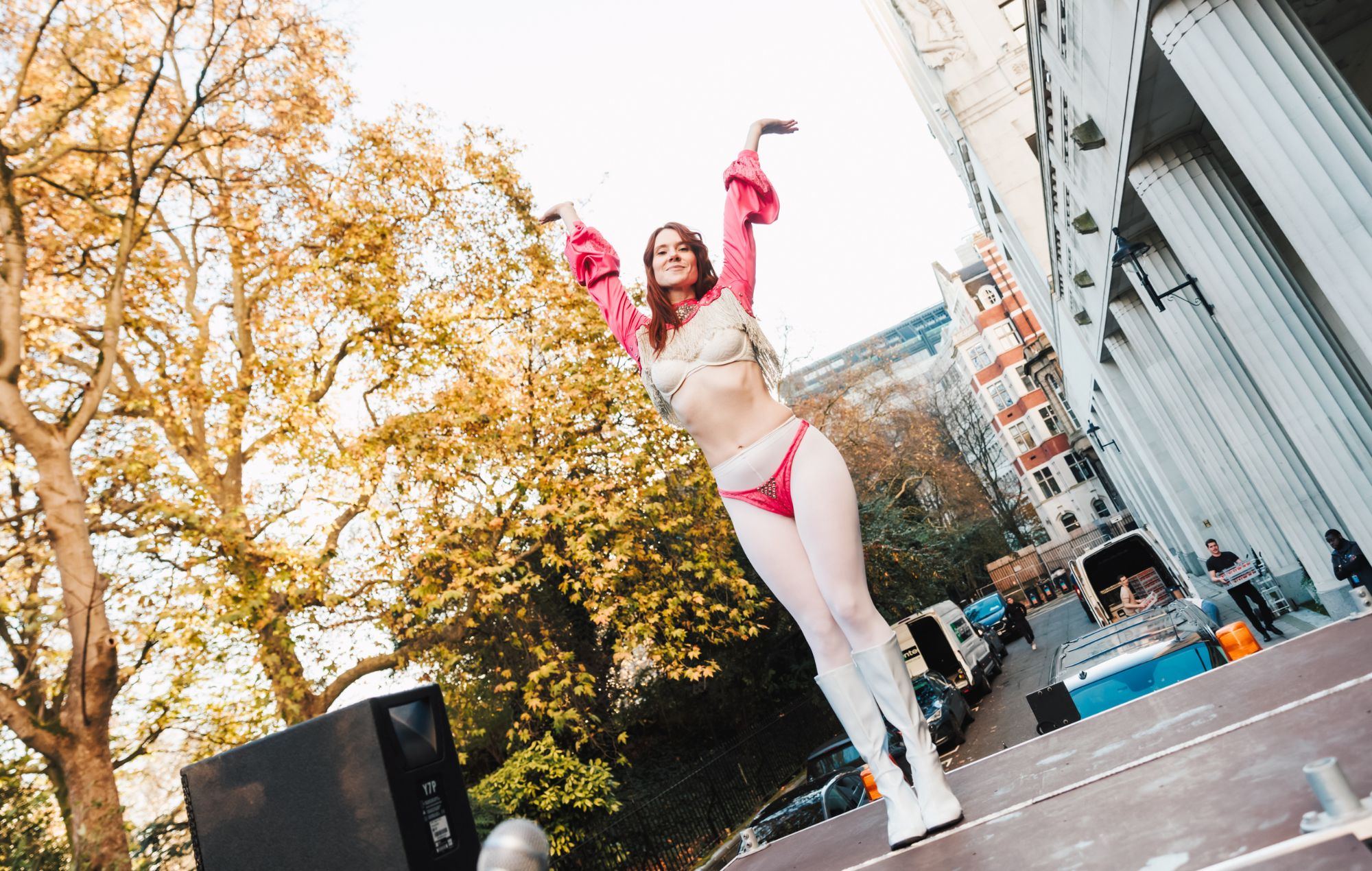
There seems to be this British arrogance that good music will always just find a way. But how can that happen if they don’t have anywhere to start and to grow?
“Exactly, and if they don’t earn any money. It’s creating an impossible environment for working class people to be able to do this. I think about people going into their 30s and thinking about starting a family. How can they? It becomes an issue of gender, race, misogyny. It’s a very political issue. To exclude people and say ‘music is only for the rich and privileged’ is just really damaging and dangerous. Musicians are so loved by the world and considered so important to our lives. We need to start valuing them.”
Would you welcome the industry at large coming under new management with a more artist-focussed drive?
“I’m not really sure about the major label world. I feel like they all need to be fired and we need to re-start. There are a lot of things that haven’t been changed. There have been no amendments to contracts that don’t make sense any more in the era of the internet. We need the government and Lisa Nandy to be the hero in this situation because the industry isn’t going to fix itself.
“There are so many people that don’t care about music but just see it as a business. Loads of people get brainwashed into thinking, ‘This is just how it is’. It isn’t. I personally don’t think you should be allowed to work at a label until you’ve toured the US in a van, on a budget, staying in Super 8s – then you can talk to me about what you know about a musician’s life.”
Music is now seen as a product more than a service. What do you think should be done so that the money is falling into the pockets of the creators?
“OnlyFans is a really interesting model, because it makes a lot of money but the creators do too. People might say sex sells, but lots of things sell. The gaming industry didn’t let itself get completely swallowed by the internet. It’s actually a growing industry and makes more money than it ever did. People pay for what they want, and people do want music but the labels didn’t put any value on it or make it user-centric.
“Your money isn’t going to the people that make what you listen to. That can change.”
Music fans are willing to spend hundreds on tickets to arena and stadium shows, but do you think that we need to show people how far their money really goes at grassroots gigs?
“Yes, also we need to show people that it’s a work issue and how many people it takes to put on a show. There’s someone on the door, there’s a van driver, a bus driver, a backline tech, a monitor engineer, a lighting engineer, a sound engineer, a tour manager. There are so many people it takes to make a show happen. If a venue closes, so many jobs are lost – not just at the venue but the people that go on tour, the people that rent rehearsal space and gear. The list goes on. We saw a lot of that get swallowed by COVID and we’re there again: in a state of emergency.”
What will be left in a year’s time if we don’t act now?
“Exactly. It’s not, ‘By this time next year..’ – it’s ‘this needs to happen now’. We need to be making decisions and statements now and acting in January. We can’t wait another year.”
Do you have faith in the industry taking it upon themselves to sort this out?
“I don’t have faith in the industry, no. If you force them to and there are consequences, then what choice will they have?”
It was alarming when English Teacher’s Lily Fontaine stood up in Parliament and spoke of how when you boil down everything an artist is required to do, even relatively successful ones earn less than minimum wage…
“I’m surprised it’s legal. Like I said, in a lot of other industries you could it theft, fraud and illegal. It’s been interesting to use OnlyFans because I’m producing work from it. What I’d usually do for social media is to hire a photographer, bring them on tour, upload etc.
“The amount of times a label or manager would say, ‘Make sure you post to social media…’ Of course I fucking know how to post to social media. It’s just so dissatisfying – it’s this empty, algorithmic vacuum where you’re spending hours feeding it and getting very little return. Is it even working? Whereas on OnlyFans, I’m paid to go on there and do it. That’s quite a satisfying feeling. It is hours of work and artists don’t like doing it or the amount of pressure that comes with it. Back in the day, I’d just post a picture on MySpace after playing a gig. Now, everyone in the world is being sucked into this trap of spending their lives online to promote themselves. It’s an addiction.
“I agree with Lily and I think that so much of the legalities of it all need to be looked into. There needs to be help for those who can’t earn the minimum wage. I know a lot of people who go on tour and don’t pay anyone because they can’t. Could there be support for volunteering efforts within the grassroots community? A lot of these problems could be solved by recorded music being made worth something. What cannot be forgotten is that the majors and streamers are making millions.”

Do you think fans would pay more if they knew how things really were?
“There’s a disconnect and it is changing. Most people think that a musician with a hit, in the public eye or on tour is loaded and should enjoy the privilege of being able to do it. It’s all about if you really value art and music. I do, and I think most fans do. Most music fans are amazing and really care about their favourite artists and want to help. We should be asking fans too because they should have a say in this.”
What advice would you give to a young artist who wants to pursue music but doesn’t think it’s financially worth the risk?
“I would say, ‘Look, I’m putting my bum out there and arse on the line for a better future for you and I won’t give up’. The most important thing an artist can do is fight for a better future. The one thing I’d really like to leave behind is the have made some kind of positive dent on this industry. I think I can make that dent with my bum.”
This week saw ASM Global become the first arena group to react to the levy recommendation by joining with Music Venue Trust to support the grassroots. Other major music industry companies are expected to follow suit in the months ahead.
This post was originally published on this site be sure to check out more of their content




